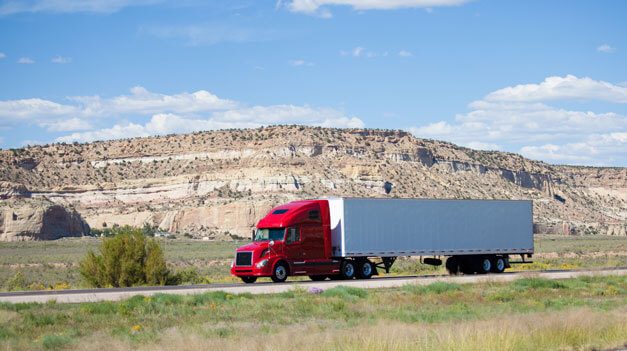House of Dispatch news
Blog
Dry Van Trucking: Pros and Cons

In the vast world of trucking, one common type of trucking job is being a dry van truck driver. Dry van drivers transport goods in enclosed trailers, providing essential services across various industries. In this blog post, we will explore the pros and cons of being a dry van truck driver, shedding light on the advantages and challenges of this particular role.
Pros of Being a Dry Van Truck Driver:
Versatile Cargo:
As a dry van truck driver, you have the opportunity to transport a wide range of cargo, including consumer goods, electronics, non-perishable items, and general freight. This versatility allows you to experience different industries and work with diverse clients.
Predictable Schedule:
Dry van trucking often offers a more predictable schedule compared to other types of trucking jobs. Since the cargo is typically pre-loaded and ready for transport, there is less time spent waiting for loading or unloading. This can provide a more structured work routine and better work-life balance.
Ease of Maneuverability:
Dry van trailers are generally easier to maneuver compared to other types of trailers, such as flatbeds or tankers. The enclosed design provides better aerodynamics and stability, making it easier to handle the trailer on the road, especially in adverse weather conditions.
Increased Security:
The enclosed nature of dry van trailers offers added security for the cargo being transported. With a solid structure and limited access points, the risk of theft or damage to the goods is reduced compared to open trailers. This can provide peace of mind for both the driver and the clients.

Cons of Being a Dry Van Truck Driver:
Limited Flexibility:
Due to the nature of dry van trucking, drivers may experience limited flexibility in terms of load securement and special cargo requirements. Unlike specialized trucking roles, dry van drivers often have less involvement in load customization or dealing with unique cargo types.
Loading and Unloading Challenges:
While dry van drivers may have a more predictable schedule, they often face challenges during loading and unloading processes. Some delivery locations may have limited access or require manual unloading, which can be physically demanding and time-consuming.
Heightened Risk of Trailer Damage:
The enclosed nature of dry van trailers also poses a risk of damage to the trailer itself. Tight maneuvering spaces or backing incidents can result in scrapes or collisions, potentially leading to costly repairs. Drivers need to be cautious and skilled in navigating tight spaces.
Market Saturation:
The high demand for dry van trucking jobs can lead to market saturation and increased competition. Finding consistent work or securing preferred routes may require additional effort and networking. Drivers may need to be proactive in seeking new opportunities or establishing relationships with reliable clients.
House of Dispatch recognizes the advantages and challenges of being a dry van truck driver. As a leading provider of professional dispatching services, we understand the intricacies of this field. We offer tailored solutions to help dry van truck drivers overcome challenges such as load flexibility, loading difficulties, and trailer damage risks. Our expertise and support can enhance your efficiency and success as a dry van truck driver. Make an informed decision and embark on a rewarding career with the assistance of House of Dispatch. Contact us today to learn more about how we can support your journey as a dry van truck driver.
